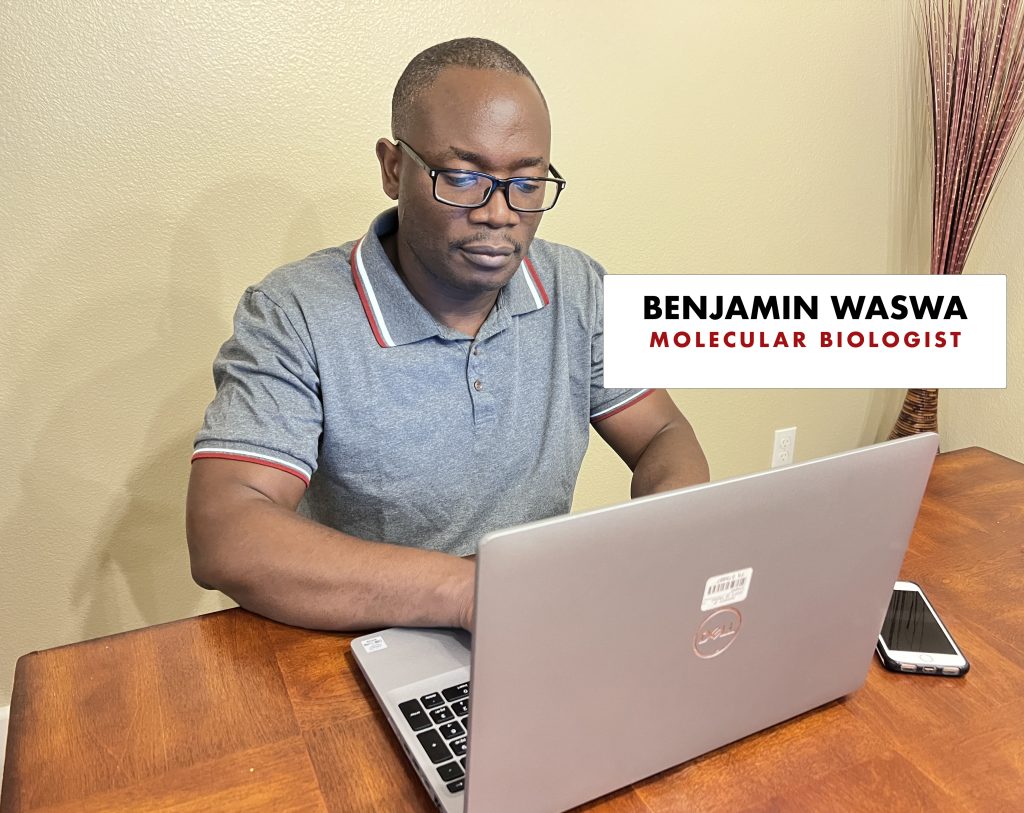Molecular biologist Benjamin Waswa has criticized some leading Kenyan media for spreading misinformation regarding the Genetically Modified Organisms (GMO) debate.
Waswa said The Nation, Kenya’s most prominent media house, is partly to blame for the angst the country is experiencing. It has not always presented a balanced coverage or facilitated the debate by inviting qualified guests from both sides of the argument to present their views.
The US-based scientist pointed out several images used by The Nation’s coverage of the debate, showing a cob of maize injected with some fluid. And another Citizen Digital Twitter page showing an illustration of an apple injected with red fluid that looks like blood, are misleading and gives a false impression about the science behind GMOs.
ALSO READ: Scientists Defend GMO Technology, Fight Disinformation.
“The photo in The Nation newspaper GMO stories are good examples of how not to communicate on the contentious GMO subject. It is not only biased, but the style of communication perpetuates misinformation. It is also in bad faith and a breach of journalism ethos,” Waswa said.
The illustrations oversimplify gene science used in creating GMOs, which typically takes place in a lab. At worst, it may leave readers with an impression that scientists deliberately inject unknown substances into maize that could harm Kenyans.
According to the US Federal Drug Agency (FDA) creating GMO involves 4 steps.
- Identifying the trait needed in a crop
- Copy that trait
- Insert in the plant DNA in a lab
- Grow the plant to ensure the trait was successfully adopted.
The criteria The Nation uses to determine image usage is unclear. They have used the cob and injection syringe picture indiscriminately in multiple GMO stories arguing the pro and con sides of the debate, including opinion pieces and news reporting, such as the article on Monday’s High Court ruling that froze the importation of GM foods.
Waswa welcomed the court ruling and said it could be an opportunity for all interested parties to have a meaningful dialogue and decide the way forward.
“I welcome the court’s intervention, and this will create an opportunity for further discussion on the subject since public participation seemed absent in the decision-making process,” Waswa said.
Noting the subject was emotive, Waswa said it was important for the public to receive credible information and encouraged the government to hold town halls and answer questions from Kenyans.
“GMO is a contentious subject, unfortunately, because of the misinformation. We now hope that the discussions will be science-driven and that citizens will have an opportunity to listen to experts and make informed decisions,” Waswa said.
He urged Kenyans not to lose sight of the purpose of the debate.
“The overriding fact that should not be lost in the discussion is the need for food security, and GMOs can help address food security by providing more varieties and much faster,” Waswa said. “The government will have to involve all the stakeholders to boost food security in the country.
